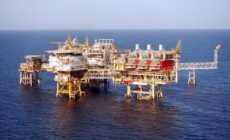Oil production under threat
- Posted on
- Comment

• As inadequate infrastructure poses gloomy prospects
IN SPITE of Ghana’s growing energy needs, amidst substantial natural gas reserves, inadequate infrastructure and investments to harness the commodity poses gloomy prospects even for sustained oil production.
The 2019 Annual Report on the Petroleum Funds published by the Ministry of Finance, which captures the collection, utilisation and management of petroleum revenues is warning of dire implications for Ghana’s oil industry if nothing is done to woo investments into the gas sector.
The absence of infrastructure to support the transportation of gas to feed, for instance a petrochemical industry, generate power for mining operations, and export the commodity was placing the producing wells in danger, due largely to the re-injection of gas, the report lamented.
It warned that Ghana risks declining oil production in the coming years as the wells are likely to be shutdown.
The report noted for instance that the Sankofa-Gye Nyame (SGN) take-or-pay obligations entered into by government had ensured that gas from the Sankofa Field was the first to be dispatched, meaning gas supply from the Jubilee and TEN Fields were “interruptible.”
The development means that “in effect, the associated gas in these fields is re-injected to accommodate SGN production, leading to rising gas-to-oil ratios.”
“This practice could end up compromising the integrity of the oil and gas producing wells and eventually reduce crude oil production, if not immediately addressed,” the report warned.
There have been concerns about low demand for gas, with calls from some industry leaders for efforts to create demand for the commodity and halt the importation of gas since the country has substantial gas reserves.
Immediate past Chairman of the Public Interest and Accountability Committee (PIAC), Dr Steve Manteaw attributes the seeming absence of demand for gas to the lack of infrastructure to harness the commodity.
“We need to create the infrastructure that will take the gas to the market; and there are a lot of uses we can out gas to; power generation is not the only thing; we can have a petrochemical industry, go into fertilizer manufacturing,” he stated.
TEN reserves endangered
According to the report, the main challenge on the Tweneboa Enyenra Ntomme (TEN) Field had to do with gas export. It was due to the lack of market for the gas and, more recently, the hydrate blockage on the gas export pipeline. Plans are underway to curb the blockage in the pipeline, while the market for gas is more of a long-term challenge.
The absence of a gas market for export had led to increased gas injection into the reservoir, with the expected increase in the Gas-Oil Ratio (GOR) and gas cycling in some of the oil producing wells in the Ntomme reservoir.
“This could have an impact on the TEN Field reserves in the long run,” the report stated.
Associated gas produced from the TEN Field as at September, 30, 2019, was 35,148.54 MMScf, of which 30,700.96 MMScf was re-injected, 2,749.59 MMScf was utilized on the FPSO for power generation, 693.92 MMScf was exported and 1,018.78 MMScf (3.72 MMScf/d) was flared.
Ghana was ill-prepared for oil and gas production- PIAC
Commenting on the development, Chairman of PIAC, Mr Noble Wadzah lamented the country’s lack of preparedness for the exploitation of oil “at the time we found oil.”
According to Mr Wadzah, the decision to extract the oil was poorly handled, hence the attendant challenges with appropriate infrastructure to adequately harness the resource.
Present infrastructure challenges and lapses in legal framework are a function of the country’s lack of readiness for the extraction.
“The challenges of lack of gas infrastructure can be laid within the confines of our lack of preparedness for the exploitation of oil,” he stated.
In spite of the establishment of the Atuabo gas plant, the erection of the ORF-Onshore Receiving Facility in Sanzule and other ongoing projects, the volume of gas from the opening of more oil wells is substantial, meaning more investments are needed to exploit the gas.
Ongoing interventions
According to the report, there is currently more gas in the Western region than the demand. This means that the excess gas would need to move to where demand is.”
The Western Corridor Gas Infrastructure/Takoradi Tema Interconnection Project (TTIP) is to enable gas evacuation from the Western gas corridor to the Eastern enclave (Tema).
The scope of the project involves amendment to the following facilities to allow for increased flow of gas: the Ghana National Gas Company (GNGC)’s Takoradi Regulating and Metering Station, West African Gas Pipeline Company limited (WAPCo)’s Takoradi Regulating and Metering Station and WAPCo’s Tema Regulating and Metering Station.
The GNGC Takoradi and WAPCo Takoradi stations have been completed, commissioned and operational.
The base scope of work at WAPCo Tema Regulatory and Metering Station (TRMS) has been changed, reducing the capacity from 345 MMscfd to 235 MMscfd capacity, in line with projected gas supply to Tema. Engineering and construction activities are progressing well with the project ready for start-up at the end of the first quarter of 2020.
Story: Isaac AIDOO, ACCRA








 (Selorm) |
(Selorm) |  (Nana Kwesi)
(Nana Kwesi)